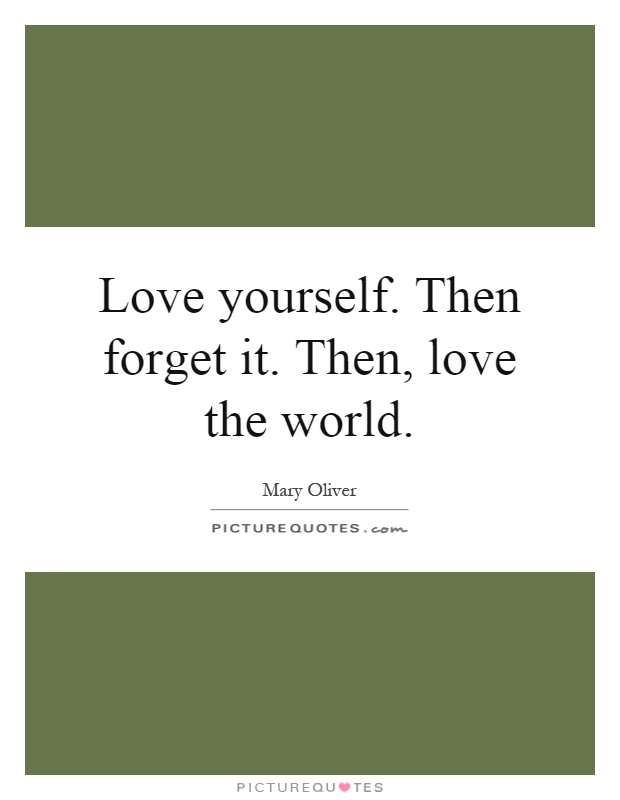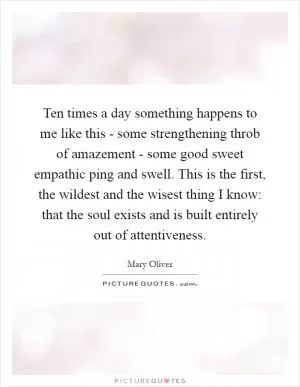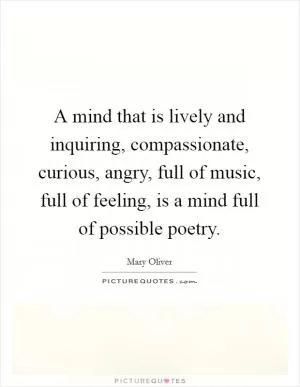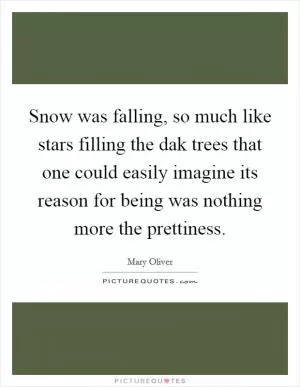Love yourself. Then forget it. Then, love the world

Love yourself. Then forget it. Then, love the world
Mary Oliver, the beloved poet and Pulitzer Prize winner, often explored themes of nature, love, and self-discovery in her work. In the context of her poetry, the phrase “Love yourself. Then forget it. Then, love the world” takes on a profound and transformative meaning.Oliver’s poetry is filled with reverence for the natural world and a deep sense of interconnectedness with all living beings. She encourages readers to look beyond themselves and their own struggles, and to find solace and beauty in the world around them. In order to truly appreciate and love the world, one must first learn to love themselves.
“Love yourself,” Oliver seems to say, not in a selfish or egotistical way, but in a way that acknowledges one’s own worth and inherent value. Self-love is essential for personal growth and fulfillment, and it allows individuals to cultivate a sense of compassion and empathy for others. By learning to love and accept ourselves, we are better able to love and accept the world around us.
But Oliver doesn’t stop there. She goes on to say, “Then forget it.” This is a powerful reminder to let go of our own ego and sense of self-importance. It is a call to humility and a recognition that we are just a small part of a much larger and more complex world. By forgetting ourselves, we are able to open our hearts and minds to the beauty and wonder of the world outside of ourselves.
And finally, Oliver urges us to “love the world.” This is a call to action, a reminder to embrace the world with all its flaws and imperfections. It is a reminder to show kindness, compassion, and love to all living beings, and to work towards creating a more harmonious and sustainable world for future generations.












 Friendship Quotes
Friendship Quotes Love Quotes
Love Quotes Life Quotes
Life Quotes Funny Quotes
Funny Quotes Motivational Quotes
Motivational Quotes Inspirational Quotes
Inspirational Quotes